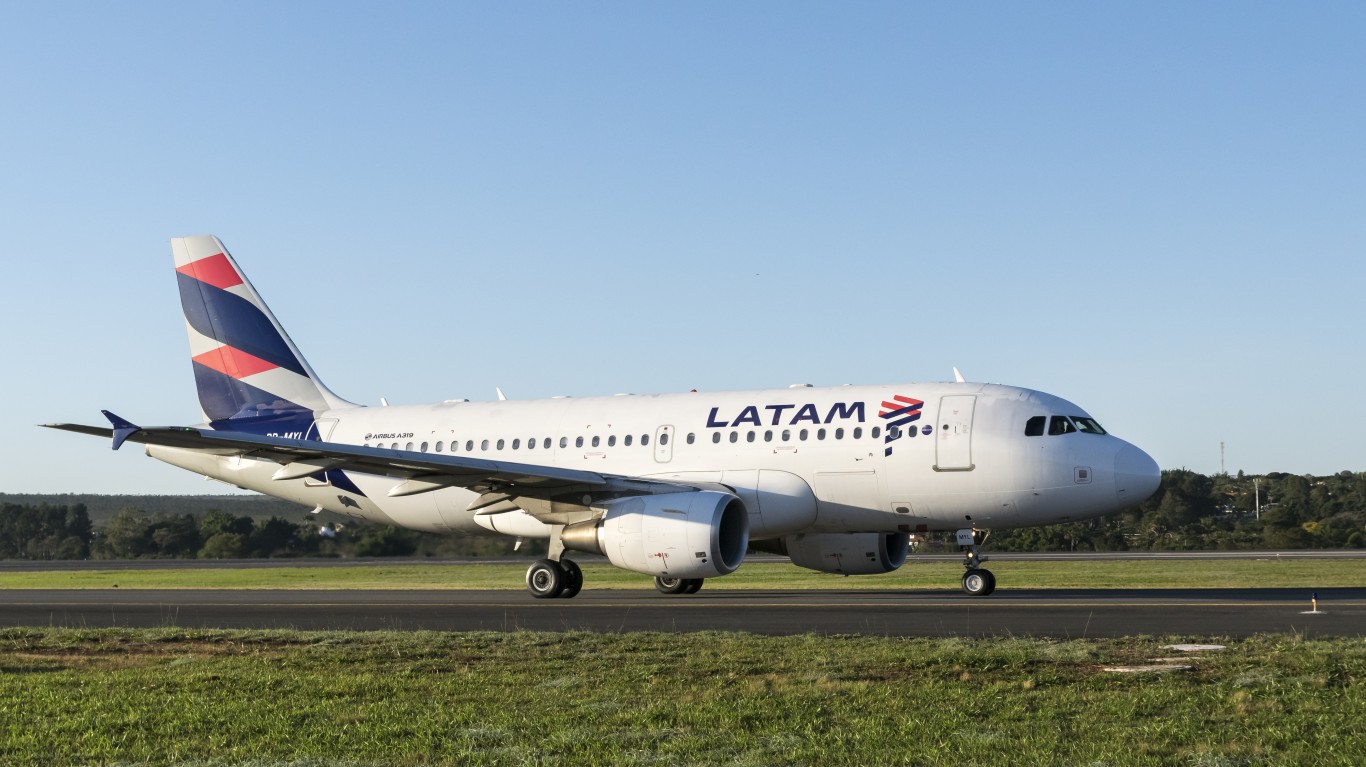Transportation
Largest Airline Bankruptcy to Date May Be for One Most People Have Never Heard Of

Published:

Major U.S. airlines like United, Delta and American have dodged immediate fatal harm thanks to a $25 billion bailout by the federal government. Germany’s Lufthansa agreed over the weekend to a $9.8 billion package from the German government in exchange for 20% of the company and two seats on the airline’s supervisory board. Latam Airlines Group S.A. (NYSE: LTM) has, instead, filed for Chapter 11 bankruptcy protection.
In a filing with the U.S. Securities and Exchange Commission (SEC) on Tuesday, the airline said its passenger operations were down by more than 95% as a result of the COVID-19 pandemic. In the 2019 fiscal year, Latam posted operating revenues of $10.1 billion and net income of $195.6 million (diluted earnings per share of $0.314).
The not-so-good news was the company’s cash total was just $1.1 billion and total current assets amounted to just $4.0 billion. Delta, by comparison, had $2.9 billion in ready cash and total current assets valued at $8.2 billion.
By passengers carried, Latam was by far the largest carrier in Latin America, with 74.2 million passengers in 2019 and a market share of 18%.
In its Chapter 11 filing, Latam said it had been talking to its creditors but that the airline feared it would run out of time to avoid forced collections. The company’s poor cash position also led to “the impossibility of curing defaults and the need to implement a comprehensive restructuring of LATAM Airlines to which all its creditors and other interested parties must join.”
The airline reported that it had negotiated and received financial commitments from certain family investors and from Qatar Airways totaling $900 million as debtor-in-possession financing. Such financing must be approved by the bankruptcy court.
In a statement printed by the Financial Times, CEO Roberto Alvo commented:
Latam entered the Covid-19 pandemic as a healthy and profitable airline group, yet exceptional circumstances have led to a collapse in global demand [that] has not only brought aviation to a virtual standstill, but it has also changed the industry for the foreseeable future.
Shares closed Friday at $2.58 and plunged to around $0.13 in Tuesday’s premarket. The shares did not trade at all during Tuesday’s regular session.
Retirement planning doesn’t have to feel overwhelming. The key is finding expert guidance—and SmartAsset’s simple quiz makes it easier than ever for you to connect with a vetted financial advisor.
Here’s how it works:
Why wait? Start building the retirement you’ve always dreamed of. Click here to get started today!
Thank you for reading! Have some feedback for us?
Contact the 24/7 Wall St. editorial team.